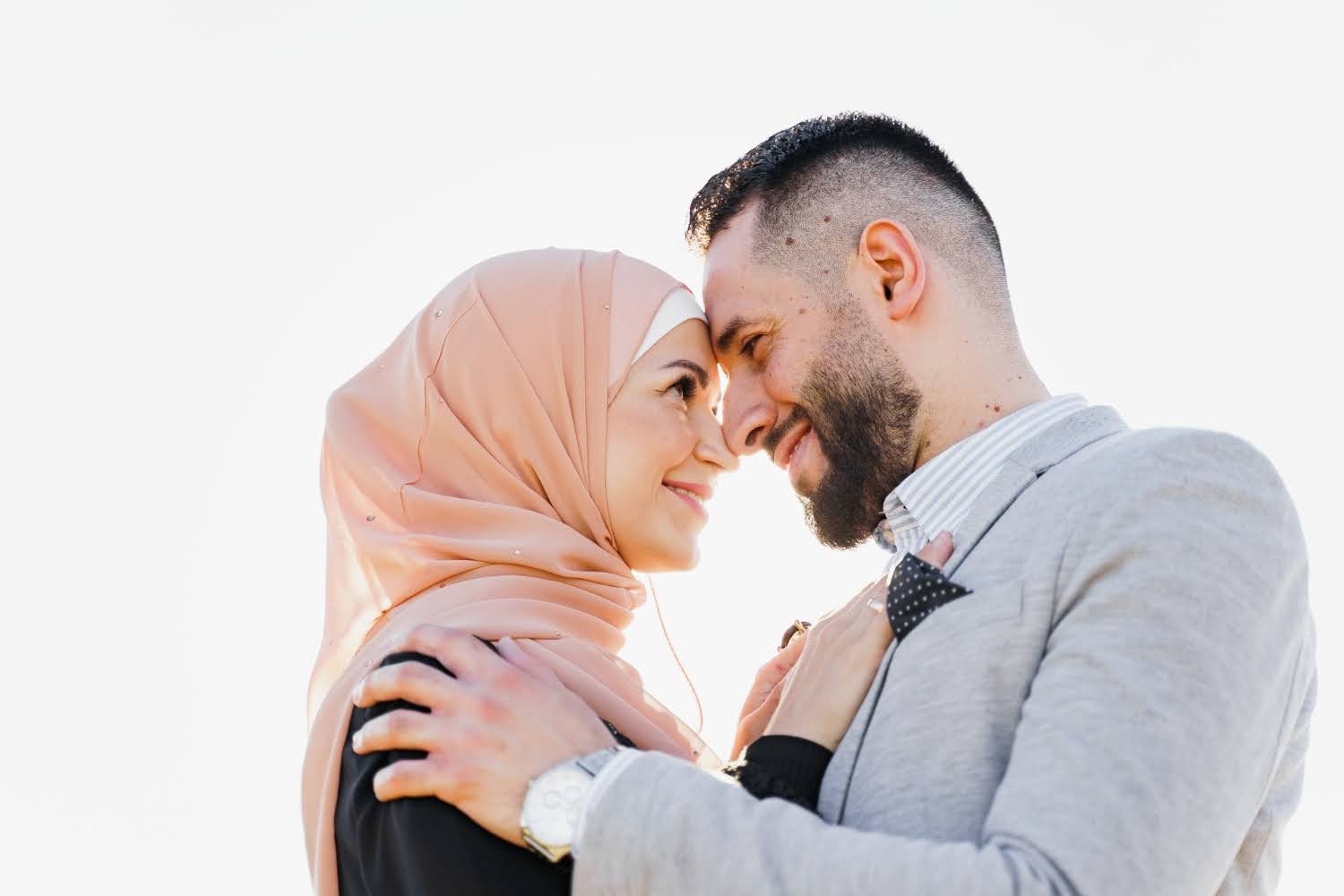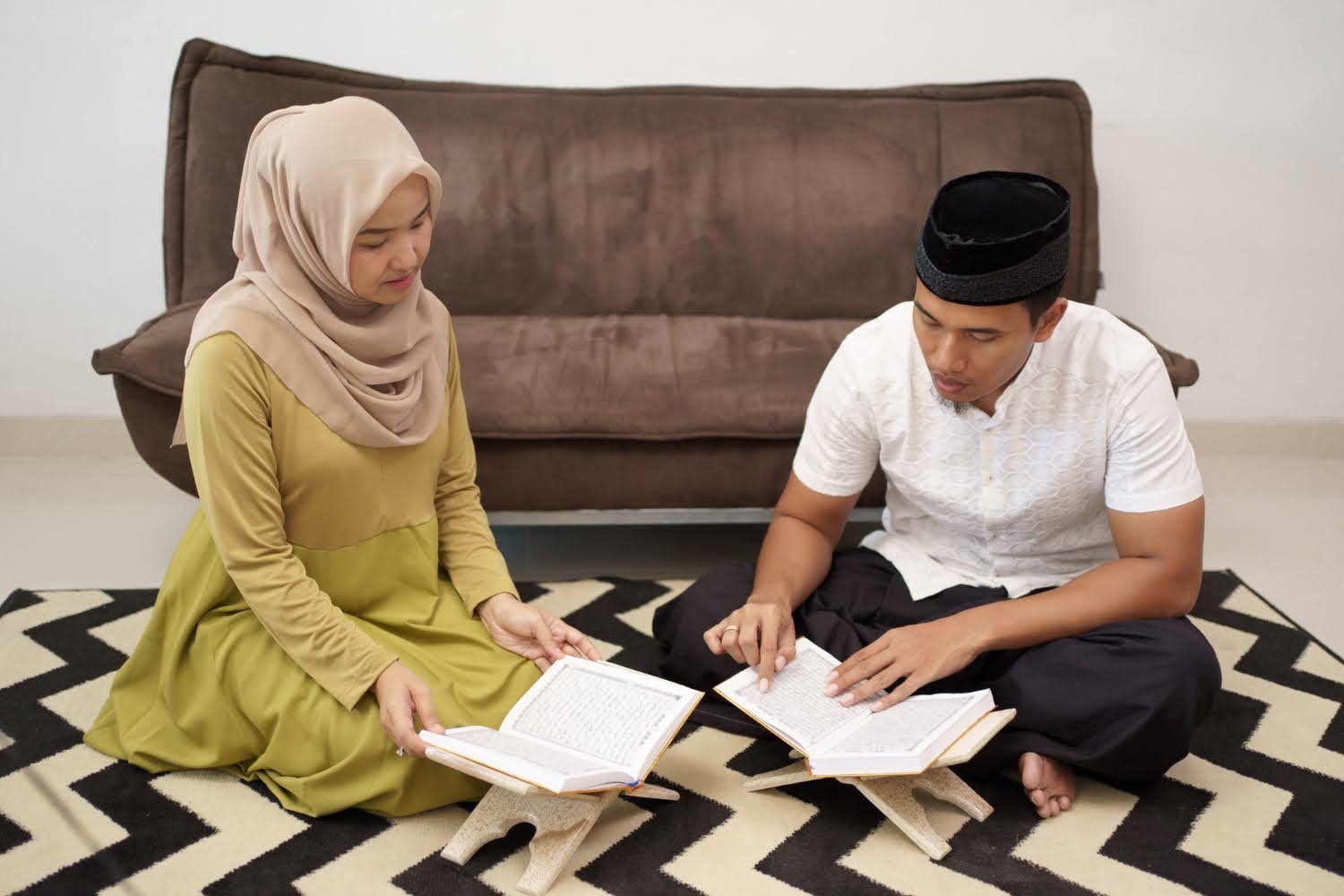
In Singapore, marriage customs and regulations vary significantly depending on one’s religious affiliations. For Muslim couples, some specific procedures and laws govern their matrimonial processes.
This article discusses registering and solemnising Muslim marriages in Singapore and outlines the marriage options available to Muslim couples.
It’s essential to understand that two Muslims cannot marry under civil law in Singapore. Instead, Muslim couples must register their marriage under Muslim law at the Registry of Muslim Marriages (ROMM).
What Is Polygamy In Singapore?

In Singapore, as in many other parts of the world, polygamy refers to the practice of being married to more than one spouse simultaneously.
Historically rooted in various cultural and religious contexts, polygamy today is heavily regulated and subject to legal restrictions in Singapore, with its practice primarily confined within certain religious frameworks.
Polygamy can take one of two forms: polygyny and polyandry, though only one of these is legally recognised under specific circumstances in Singapore.
- Polygyny: This is the form of polygamy that is permitted under Singapore’s legal system but exclusively within the Muslim community.
Polygyny allows a Muslim man to marry up to four women, contingent upon obtaining consent from his existing wife or wives and proving his financial capacity to support multiple families. This practice is governed by Islamic law as interpreted by the Syariah Court in Singapore. - Polyandry: This involves a woman having more than one husband and is not recognised or legal in Singapore. There are no known cultural or religious practices supporting polyandry in Singapore’s diverse societal fabric.
Is Polygamy Legal In Singapore?
Polygamy is generally illegal in Singapore under the Women’s Charter. This law stipulates that a marriage is void if either party is already lawfully married to another person.
However, an exception exists within the Muslim community, which comprises about 15% of the country’s residents. Muslim marriages are governed by the Administration of Muslim Law Act (AMLA), which allows polygyny under specific conditions, making it the only form of polygamy legally recognised in Singapore.
Under AMLA, Muslim men can seek approval to marry multiple women (up to four), but this is contingent upon meeting stringent conditions.
These include obtaining consent from the existing wife or wives and demonstrating to the Syariah Court that the husband can fairly and equitably provide for all wives and offspring financially and emotionally.

Eligibility For Registering A Muslim Marriage In Singapore
To register a Muslim marriage in Singapore, the following criteria must be met by you and your intended spouse:
- At least 18 years of age, although individuals under 21 must participate in a Marriage Preparation Programme (MPP) and secure consent from parents or guardians before registering the marriage;
- Practising Muslims;
- A heterosexual couple since same-sex marriages are not recognised and
- Must be a Singapore Citizen, Permanent Resident (PR) or marrying someone with one of these statuses.
For marriages involving a foreigner who holds or has held a work permit, prior approval from the Ministry of Manpower’s Controller of Work Passes is necessary before the marriage can be registered.
Who Is Not Eligible For A Muslim Marriage In Singapore?
Muslim marriages in Singapore are specifically for couples where both the bride and the groom are Muslim. Consequently, non-Muslim individuals are not eligible to apply for a Muslim marriage.
Individuals known as saudara baru, or recent converts to Islam who are registered under the Muslim Converts Rules but have not yet received their permanent conversion certificate, cannot apply for a Muslim marriage until they receive this certificate.
In addition, both partners in a Muslim marriage must be Muslim, thereby excluding the possibility of inter-faith marriages under the Registry of Muslim Marriages (ROMM).
However, civil laws provide an alternative whereby a Muslim and a non-Muslim can marry legally. Such marriages are registered through the Registry of Marriages, not ROMM, accommodating the legal framework for inter-faith unions.
Requirements For A Valid Muslim Marriage In Singapore
To ensure a Muslim marriage is legally recognised, the solemnisation must meet the following criteria:
- It should be officiated by the bride’s Wali (her legal guardian under Muslim law, typically a close male relative like her father or brother) or by a Kadi or Naib Kadi (appointed religious officials).
- Two Muslim male witnesses at least 21 years old must be present.
- A Mahar (Maskahwin), which is a compulsory matrimonial gift from the groom to the bride, symbolising the groom’s commitment and responsibility towards his wife, must be given.
The Wali acts as the bride’s lawful guardian, and his approval and presence during the marriage registration are essential.
If the bride is estranged from her Wali or if he is unable to give consent or attend the marriage registration, the bride should be accompanied by her mother or another close relative.
Polygynous Marriage Procedures
A polygynous marriage allows a Muslim man in Singapore to have up to four wives simultaneously. Here are the criteria and steps required to establish a polygynous marriage legally:
Criteria For A Polygynous Marriage
The husband must demonstrate the ability to:
Financially, physically and emotionally support all his wives.
Maintain a stable marriage with his current wife or wives, showing that the desire for an additional wife is not due to dissatisfaction with his current marital situation.
Provide specific reasons for marrying another wife, such as benefits the new marriage would bring that are not present in the existing marriage(s). It’s important to note that love alone is not considered a valid reason.

6-Step Process To Enter Into A Polygynous Marriage As A Muslim In Singapore
1. Submit A Polygynous Marriage Application
Complete the application form and submit it in person at the ROMM office. There is a non-refundable fee of $380 for processing the application.
2. Interview With The Kadi
You and all parties involved will be interviewed by the Kadi, who will record all statements and collect signatures from each individual. Appointment letters for these interviews will be distributed within a month of applying.
The Kadi, the religious official responsible for solemnising Muslim marriages, will review the application thoroughly. This includes separate meetings with the husband, each of his current wives and the prospective wife to collect signed statements from each individual.
3. Notification Of Application Outcome
The Kadi will review all the provided statements and evidence and then decide to approve or deny the marriage application. This decision will be communicated through a written notice to all involved parties. If the application is approved, the husband may register the marriage.
4. Finalise Marriage Details
Organise the details of your solemnisation, including the date, time, location, maskahwin and hantaran. Confirm the availability of your Kadi and Qali, and choose two witnesses. Ensure you are clear on the timelines for these arrangements.
Before scheduling your marriage, you need to determine the date and location of your solemnisation. Options for solemnisation include:
- At the Registry of Muslim Marriages (ROMM);
- At a location of your choice;
- Online via video link.
If you choose to have your solemnisation at ROMM, you can specify this during your marriage registration application. The availability of your chosen solemniser will determine your proposed solemnisation date and time, which applies to all locations.
If your selected solemniser is unavailable on your chosen date, you must select a new date or a different one.
The solemnisation of your marriage must occur no sooner than 21 calendar days and no later than 150 calendar days from the date you file your registration application.

Choosing A Solemniser
In Singapore, Kadis and Naib Kadis are religious officials appointed by the President to solemnise Muslim marriages.
Kadis can handle marriage applications and conduct solemnisation with or without a Wali present, whereas Naib Kadis can only solemnise marriages where a Wali is present. ROMM oversees 5 Kadis and 27 Naib Kadis.
You can choose a Kadi or Naib Kadi for your solemnisation, but you must choose a Kadi if you do not have a Wali.
You can find a list of Kadis and Naib Kadis on the ROMM website and book them online when you register your marriage. It is recommended that you select a Kadi or Naib Kadi that is located near your solemnisation venue.
The bride’s Wali is also eligible to solemnise the marriage, provided you obtain prior approval from ROOM along with the written consent of a Kadi or Naib Kadi. A Kadi or Naib Kadi must be present during the solemnisation.
While Kadis and Naib Kadis are not compensated for their services as they volunteer, it is customary for couples to offer a monetary token of appreciation.
Witnesses
Two male Muslim witnesses over 21 must be present at the solemnisation. They do not need to be present when applying but must attend the solemnisation. You must provide their full names and NRIC numbers to register your marriage.
5. Complete The Marriage Application
Submit the final marriage application with all required details and payments. Keep track of the documents and payments needed, where to submit them and the associated timelines and costs.
6. Face-to-Face Session (Bersamamu) With Kadi/Naib Kadi
Participate in a face-to-face session called Bersamamu with your Kadi or Naib Kadi. This session provides an opportunity for ongoing communication and support from your Kadi or Naib Kadi for up to two years following your marriage.
In this session, the bride and groom will also receive guidance and advice on establishing a strong and healthy marriage foundation.
The bride’s Wali is not required to attend this session.
However, if the marriage involves a minor, both parents must accompany the minor during this session.
7. Solemnisation Ceremony
Have your marriage officially solemnised and legally registered. Once the ceremony is complete, you will receive a hard copy of your marriage certificate.
8. Collecting The Marriage Certificate
After the solemnisation ceremony, you can obtain your marriage certificate directly from the solemniser.
Should there be any changes in details on the day of the solemnisation, such as a change in witnesses for ceremonies held outside of ROMM, notify your solemniser. Also, inform them of the date you plan to visit ROMM to pick up the certificate after any necessary amendments have been made.
Upon receiving your marriage certificate, ensure all details, including NRIC numbers, names, solemnisation venue and date, are accurate. If you find any discrepancies, contact ROMM immediately for corrections if the solemnisation occurred at ROMM or by the next business day if it occurred elsewhere.
Conclusion About Polygamy/Muslim Marriage In Singapore
Polygamy in Singapore remains a practice confined to the Muslim community, regulated to align with both religious obligations and contemporary ethical standards.
As society progresses, the ongoing dialogue between traditional practices and modern values will shape how polygamy is viewed and practised, ensuring it meets community needs and legal standards.
The future of polygamy and its regulation in Singapore may see further refinements as social attitudes evolve and legal frameworks adapt.
For those navigating the complexities of Muslim marriage laws or seeking clarity on their legal options, we offer a free 30-minute consultation with our skilled family lawyers in Singapore to provide personalised legal advice.
Frequently Asked Questions About Polygamy/Muslim Marriage In Singapore
Is Polygamy Allowed In Singapore For Non-Muslims?
No, polygamy is not allowed for non-Muslims in Singapore. The Women’s Charter explicitly requires monogamy for all marriages except those conducted under the Administration of Muslim Law Act (AMLA) for Muslims.
What Are The Financial Obligations Of A Muslim Man In A Polygynous Marriage In Singapore?
A Muslim man in a polygynous marriage in Singapore must demonstrate the ability to adequately provide for the financial, emotional and physical needs of all his wives and any children from the marriage. This includes equitable treatment in terms of maintenance and living standards as per the guidelines set by the Syariah Court.
How Does The Law In Singapore Handle Disputes In Polygynous Marriages?
Disputes in polygynous marriages in Singapore are handled by the Syariah Court, which applies Islamic law to matters such as divorce, inheritance and matrimonial disputes within the Muslim community. The court seeks to mediate and provide equitable solutions according to Islamic principles.
Can A Muslim Woman Initiate A Divorce In A Polygynous Marriage In Singapore?
Yes, a Muslim woman can initiate a divorce in a polygynous marriage in Singapore. She may apply for divorce at the Syariah Court, which will consider her case based on Islamic law, ensuring that her rights and reasons for divorce are justly evaluated.
What Are The Legal Consequences Of Violating Polygamy Laws In Singapore?
Violating polygamy laws in Singapore, under the Women’s Charter, is a serious offence for non-Muslims, leading to a marriage being deemed void. For Muslims, unauthorised polygynous marriages (those not sanctioned by the Syariah Court) can lead to legal penalties, including fines and potentially nullification of the marriage.